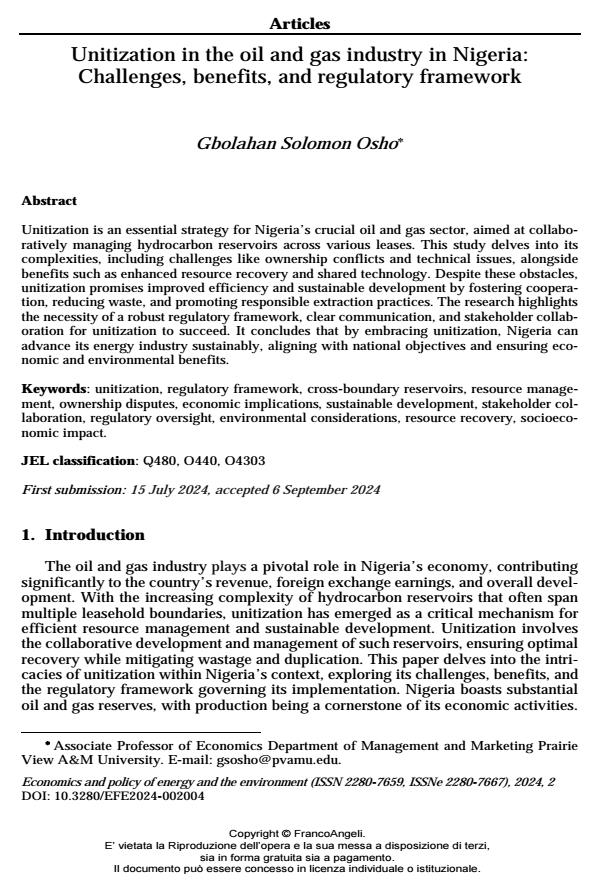Unitization in the oil and gas industry in Nigeria: Challenges, benefits, and regulatory framework
Journal title ECONOMICS AND POLICY OF ENERGY AND THE ENVIRONMENT
Author/s Gbolahan Solomon Osho
Publishing Year 2024 Issue 2024/2
Language English Pages 18 P. 69-86 File size 209 KB
DOI 10.3280/EFE2024-002004
DOI is like a bar code for intellectual property: to have more infomation
click here
Below, you can see the article first page
If you want to buy this article in PDF format, you can do it, following the instructions to buy download credits

FrancoAngeli is member of Publishers International Linking Association, Inc (PILA), a not-for-profit association which run the CrossRef service enabling links to and from online scholarly content.
Unitization is an essential strategy for Nigeria’s crucial oil and gas sector, aimed at collaboratively managing hydrocarbon reservoirs across various leases. This study delves into its complexities, including challenges like ownership conflicts and technical issues, alongside benefits such as enhanced resource recovery and shared technology. Despite these obstacles, unitization promises improved efficiency and sustainable development by fostering cooperation, reducing waste, and promoting responsible extraction practices. The research highlights the necessity of a robust regulatory framework, clear communication, and stakeholder collaboration for unitization to succeed. It concludes that by embracing unitization, Nigeria can advance its energy industry sustainably, aligning with national objectives and ensuring economic and environmental benefits.
Keywords: unitization, regulatory framework, cross-boundary reservoirs, resource management, ownership disputes, economic implications, sustainable development, stakeholder collaboration, regulatory oversight, environmental considerations, resource recovery, socioeconomic impact.
Jel codes: Q480, O440, O4303
Gbolahan Solomon Osho, Unitization in the oil and gas industry in Nigeria: Challenges, benefits, and regulatory framework in "ECONOMICS AND POLICY OF ENERGY AND THE ENVIRONMENT" 2/2024, pp 69-86, DOI: 10.3280/EFE2024-002004